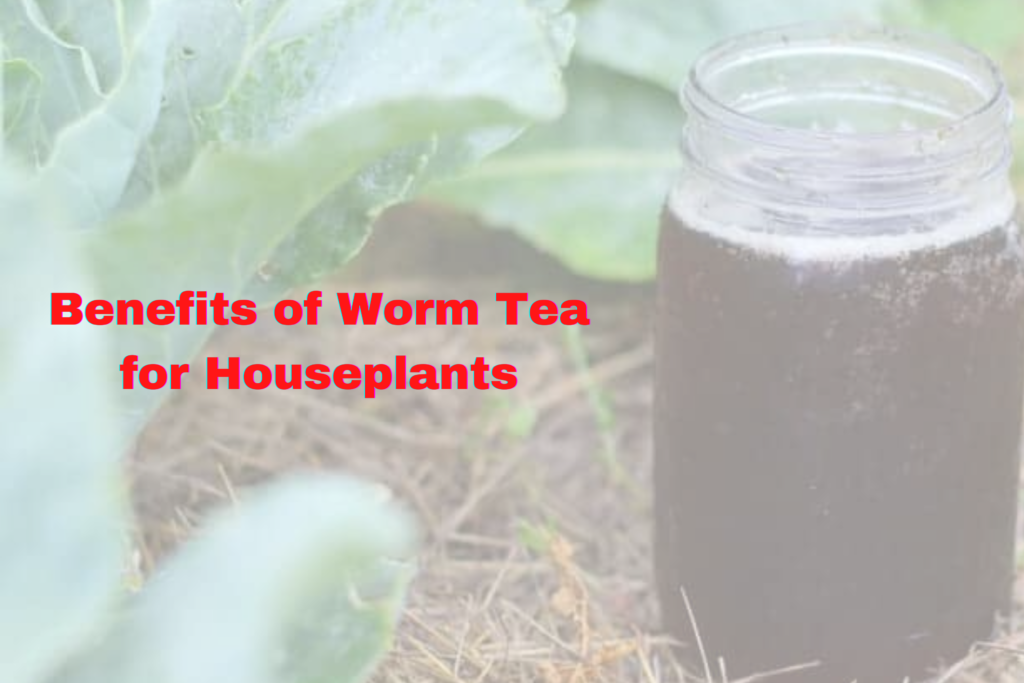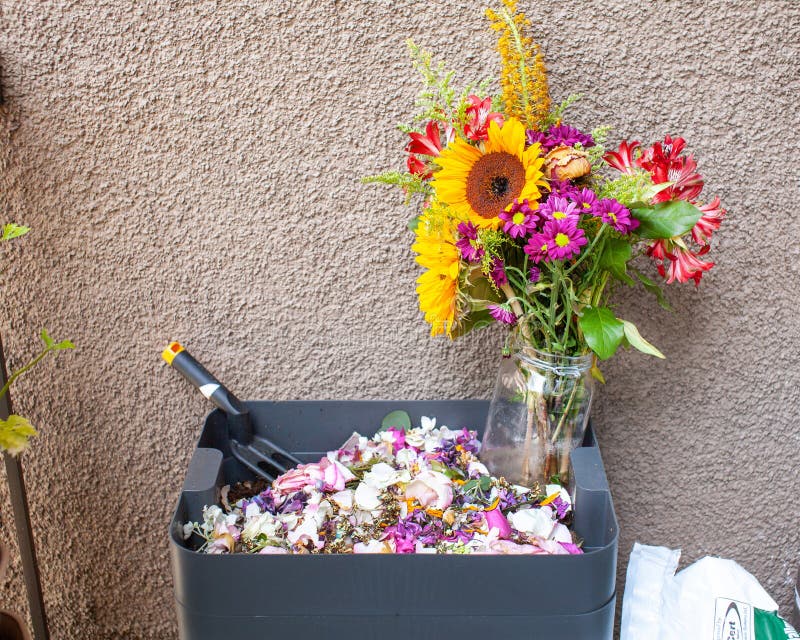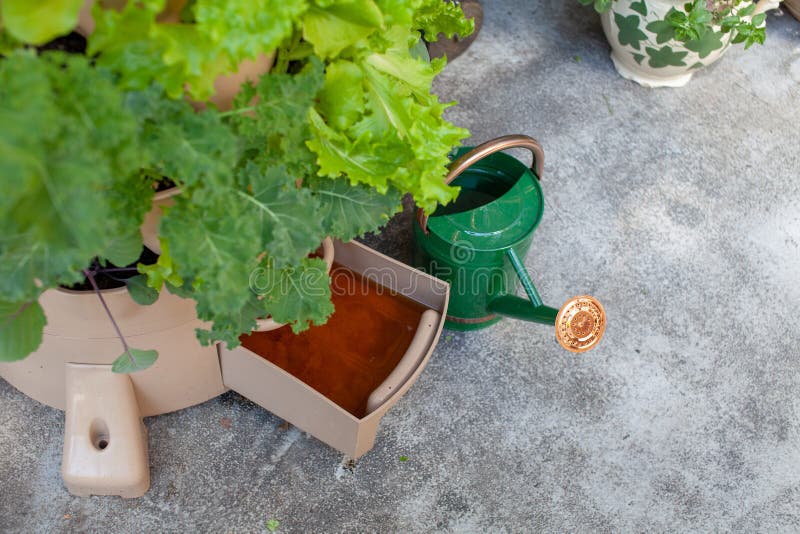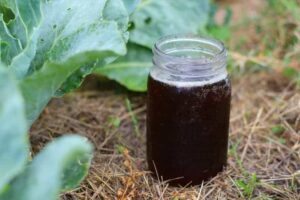HousePlantJoy is supported by our audience. When you purchase through one of our links, we may earn a small affiliate commission. As an Amazon Associate I earn from qualifying purchases. Your cost is not affected.
==================
Benefits of Worm Tea for Houseplants
Did you know that worm tea is great for houseplants and do you know the benefits of worm tea? It’s true! Worm tea is a liquid fertilizer made from the runoff of vermicomposting (composting with worms). It is high in nitrogen, phosphorus, and potassium – all of which are essential nutrients for plants. Not only does worm tea provide these essential nutrients, but it also helps to improve the soil structure and moisture retention. So if you’re looking for a natural and organic way to fertilize your houseplants, then look no further than worm tea!
Worm tea is a natural, non-toxic, and effective way to replenish the soil with nutrients and protect your plants from various diseases.
Many plant enthusiasts are unaware of the benefits of worm tea. Worms are an incredible workforce for compositing. Also called vermicomposting, they are perfect for creating an organic fertilizer for your soil.
Vermicomposting is an excellent way to improve soil health and digestive excrement, known as casting. It is used to produce a natural, non-toxic fertilizer – worm casting tea. Just like certain herbal teas that are beneficial for human health and the immune system, worm tea is perfect for boosting your plants’ health and encouraging their growth.
Worms as One of the Greatest Composters
Although worms are perfect nature composters, it doesn’t mean they are the only composting champions. Various insects and rodents play a significant role in composting processes.
For example, Blatticomposting uses cockroaches for composting process. However, worms are not only less creepy, but they are also far superior. When you dig into fertile soil, you will see some wrigglers, which means worms are responsible for soil health. Also, if you have poor, depleted soil, adding worms can help improve its quality.
Useful Tip: All worms provide composting benefits. However, the true composting worms (Eisenia fetida, eisenia hortensis,Perionyx excavatus) devour far more compost than their earthworm cousins such as Nightcrawlers. They may seem small, and they are quite tiny and slim. But like a teenage boy, they consume large amounts with their incredible appetites!
Some key reasons why worms are the most excellent composters include:
- They provide natural aeration and create water paths to the root systems of your plants through tunneling. It helps maximize water retention.
- Worms are also good at purifying the soil. They consume heavy metals like cadmium, lead, and copper. It helps to keep the excrement metal-free.
- Another benefit of using worms as composters is that they consume, digest, and excrete, equivalent to their body weight. These excreted castings contain potassium, phosphorus, and nitrogen, which all are essential for healthy soil.
- After harvesting the castings, you might also use the compost for your plants when you repot. Additionally, it makes a great fertilizer for your outdoor plants, too!
What is Worm Tea?
Worm tea is a natural organic liquid fertilizer that you can prepare by soaking worm castings (not the actual worms) in water. Using a compost bin for worms, consume and decompose the food scraps. Once worms digest the organic material, they produce castings (worm waste) packed with microbes and nutrients essential for your plants.
Using water to steep these castings, prepare worm tea that encourages your plants’ growth. However, you should know that worm tea, and worm leachates are two different things. Worm leachate is the drainage liquid sitting at the bottom of the worm bin. Bear in mind that it can cause harm to certain plants as well.
Why Worm Tea?
There are numerous reasons and benefits of worm tea and why you should use it as an alternative to chemical fertilizer. It includes:
· Presence of Beneficial Bacteria and Microbes
One of the most significant benefits of worm tea is that it contains microbes and bacteria that provide essential nutrients to the soil. These powerful bacteria and microbes help improve soil health. They also encourage the growth and protect the plants from many common diseases that could harm your plants.
· Improves Soil Structure
One of the significant benefits of worm tea is that the presence of microbes helps create tunnels in the soil. It means your soil will retain more water for more extended periods while also getting a lot of oxygen. These tunnels allow water penetration so that they can reach the root systems of your plants.
Watering your plants regularly with worm tea helps them root easily and consume the nutrients they need to stay healthier and productive.
· Prevents Pests and Diseases
Immediately after your apply a microbe-rich worm team to the plants, microbes start working right away. The microbes’ army lives around your plant’s roots to make sure to destroy bad guys that try to harm your plants. Your plants will be ready to fight off diseases and prevent pests. A lot of gardeners using worm tea report an increase in fruit production and reversal of the disease.
-
Stable Shelf Life
Keeping worm tea in a concentrated bottle form increases its lifespan. It is shelf-stable so that you can use it for more than a year. In comparison, compost tea has a limited lifespan. Compost tea also losses its effectiveness if it doesn’t get any oxygen.
· Increases Water Retention
Water is essential to keep your plants thriving, especially during the hot season. Another benefit of worm tea is that it helps your soil retain water for more extended periods.
· Worm Tea as Foliar Spray
Using worm spray as foliar spray help plants to produce larger stems and more foliage. It is perfect for your plants if they don’t get enough sun. Moreover, you can also use worm tea to a compost pile, which will help speed up the break-down process.
How to Prepare Worm Tea?
It is easy to brew a top-quality worm tea. So, any garden enthusiast can easily make it to keep their garden healthy. Here are the steps that you might go through when preparing worm tea.
Collect Necessary Material
Firstly, you will need a compost tea bag to prepare worm tea. It can be a natural fiber bag or anything else that doesn’t leak. Moreover, some other necessary materials that you will need to prepare worm tea include a five-gallon bucket containing dechlorinated water, worm casting, and a sprayer.
Fill the Bag with Worm Casting
Once you have all the materials, you are all set to make worm tea. Fill the bag with worm casting and make sure to shut the open end of the bag.
Steep the Bag into the Water
Now, steep the bag into a five-gallon of the water bucket. Since aeration helps increase microbes’ effectiveness, you may want to use a fish tank so it can inhale more oxygen.
Leave the Bag for Submerged Overnight
Wait patiently and keep the bag submerged for at least 24 hours. Once you see the water is becoming light brown, it means your worm tea is ready.
Dilute the Tea
Now, you have to dilute the tea with water. Remove both fish tank and teabag, and then dilute again in the water.
How to Use Worm Tea?
Since you have brewed worm tea, it’s time to use it as soon as possible. Make sure to water your plants at least once a week. Here’s how to use worm tea:
· Watering or Spray
Firstly, you have to choose a method to apply worm tea. You can either choose a watering can or a spray bottle. If a spray bottle is convenient for you, make sure to prevent clogging it by straining the worm tea.
However, when using a watering can, just pour into the potting mix as you would when watering. No need to strain the extra bits as they dissolve over time into the soil.
Some gardeners choose both methods, alternating between them. One month they water the mix. The next they spray the leaves, also known as a foliar spray. And of course, you may change up the type and frequency of your applications according to what works best for you.
· Watering Plants
Now, water the plants with worm tea. Whether you’ve got an indoor or outdoor garden, you can water both with worm tea. Just ensure that you are covering the soil or the plant leaves. Or, you might decide to do both in one application.
· How Often Should You Use Worm Tea
Most plant owners use worm tea about once a month. However, some use it weekly while others every 3 months. It’s dilute enough to use as frequently as you wish. Like a diluted fertilizer, it will not burn your plants.
I suggest using it monthly at first. If some plants seem to need an extra boost between fertilizing treatments, give them another douse from your worm tea bottle. It won’t hurt them and may just help rejuvenate a plant that seems to be withering, not thriving.
· Store Leftover Worm Tea
After spraying all your plants, if you have any leftover worm tea, make sure to store it properly. I recommend keeping the remaining tea in a container with no lid. It helps microorganisms to get enough oxygen, essential for their survival. If these microorganisms die over time, the tea will lose its effectiveness. I also recommend using a new batch of worm tea every time.
However, rather than storing it too long, consider using it on your outside plant, too. And you might have a friend with houseplants who would be quite thankful for sharing your nutrient-boosting worm tea.
With so many benefits of worm tea…
Have you ever made your own worm tea? It’s really easy and a great way to provide nutrients to your houseplants. Just take some compost (or even kitchen scraps) and put it in a container with some worms. Let the worms do their thing, and then you can use the tea on your plants.
Instead of feeding your plants chemical fertilizers, use this natural organic worm tea to encourage your plants’ health and growth. It will also help your plants to increase their growth and vigor.
If you’re looking for an easy and organic way to give your houseplants a boost, look no further than worm tea from compost. This simple concoction is easy to make and provides essential nutrients to your plants.
Leave a comment below if you have any questions or want to share your own tips for making worm tea!







